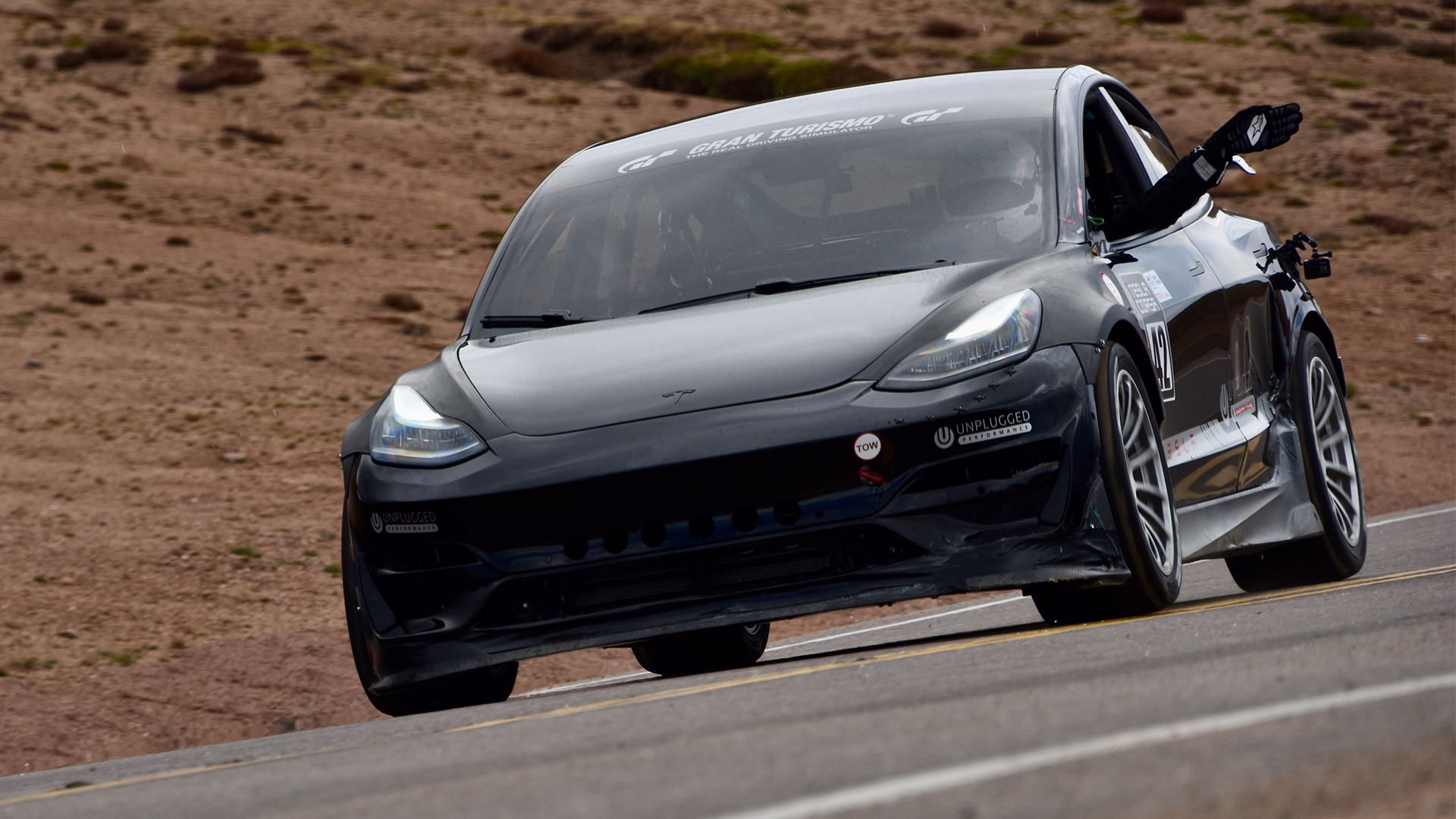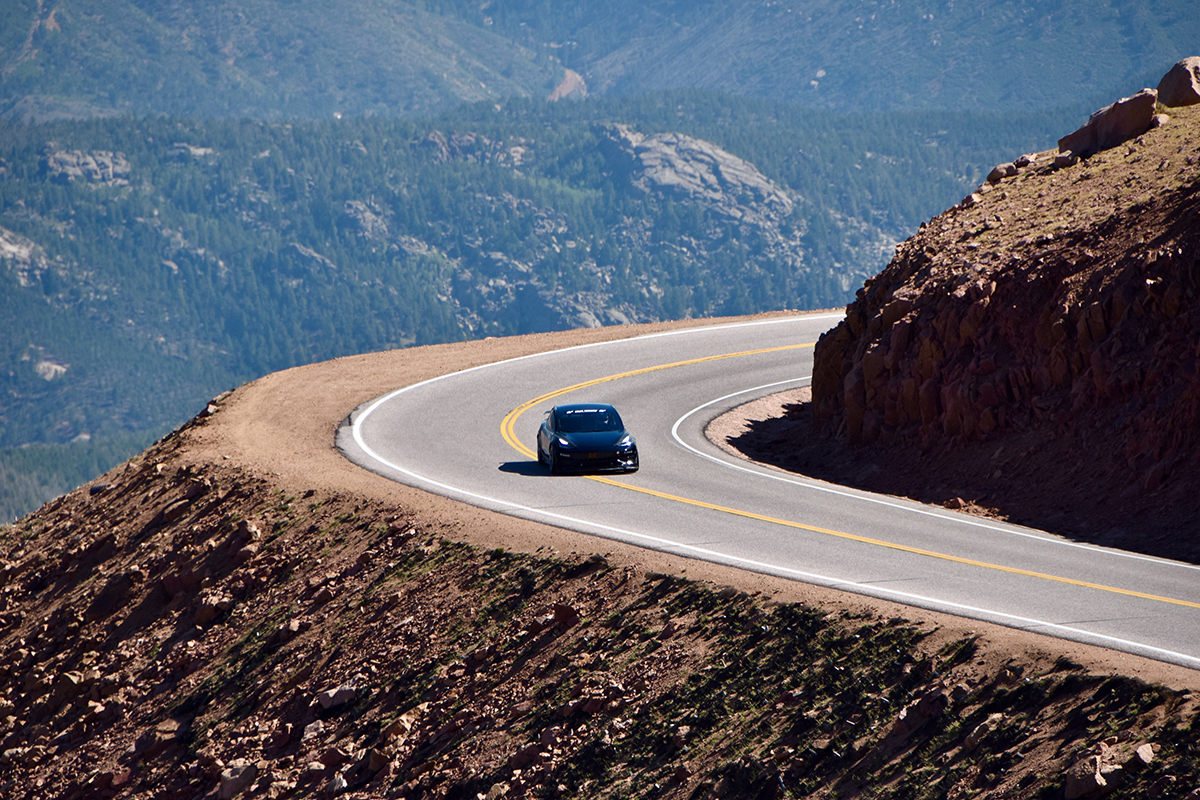

Over the weekend, the Pikes Peak International Hill Climb saw a trio of modified Tesla Model 3s compete to see who was fastest to the summit. But, like most things involving Tesla, the tale is anything but ordinary. In the days leading to the race, two of the Teslas crashed severely, leaving one out of the race completely and the other facing a fast-paced rebuild. Despite the unforeseen difficulties, however, the two EVs that made it to race day still came out on top in their respective class.
The notable journey has been that of veteran racer Randy Pobst and his Unplugged Performance Tesla Model 3 Ascension-R. Early in the week, Pobst was piloting the modified EV when he lost control in the course’s upper level, went airborne, and smashed the car to pieces against a boulder. According to Pobst, he knew of the dip in the course, but he felt that the car was performing so well that it would be able to take the bump at a higher speed. The mistake, which he calls a “rookie move,” nearly cost them the entire race.
Little over 48 hours later, the team was able to source another Model 3 for various parts, as well as rebuild and repair the crashed unit. With the help of a local Tesla-trained body shop, Unplugged Performance sourced new wheels and even dealt with a bent frame. Meanwhile, the team worked to repair the damaged carbon fiber bits and ensure the integrity of its Ascension-R kit.
By Sunday, the Model 3 was back in action and ready to take its place on the leaderboard. From the base of the mountain, Pobst immediately buried the throttle and galloped silently towards the summit. Unfortunately, a minute after takeoff, the Tesla’s battery pack began to display an overheating error and forced the car into a sort of limp mode. Still, Pobst pushed on and finished out the race in third place—albeit a full minute slower than his earlier qualifying run. His recorded time was clocked in at 11:04.131.

Despite Pobst’s snafu, there was still another Tesla in the race, a near-stock Model 3 Performance driven from Florida to Colorado and piloted by Blake Fuller. As it turns out, Fuller’s official time of 11:02.802 beat out Pobst by a razor-thin 1.32 seconds. Fuller and Pobst placed first and second in the exhibition class, and 20th and 21st overall, respectively. You can see the full results here.
As for Pobst, he believes that the Model 3 will easily break the ten-minute mark on the next official go-around. Or, in his own words: “There’s always next year.”

This feels like just the beginning of EV superiority at Pikes Peak, which may ultimately have its own class in the race—or at least, it should, rather than partake in the current “Exhibition” class. There are a number of advantages over cars powered by traditional internal combustion engines in this race, notably the stable performance despite elevation changes and rapid acceleration coming out of corners.
The current all-time Pikes Peak record holder still belongs to Volkswagen and its purpose-built ID.R electric prototype. In June 2018, the ID.R set a new benchmark of just 7:57.148 with Porsche racing legend Romain Dumas behind the wheel.
Got a tip? Send us a note: tips@thedrive.com